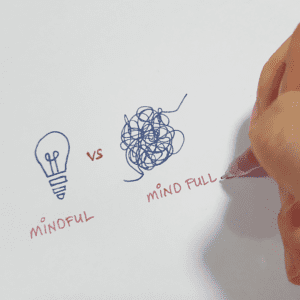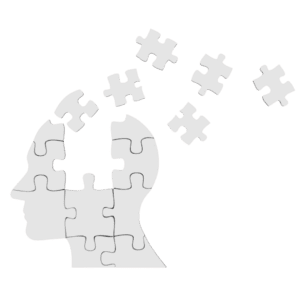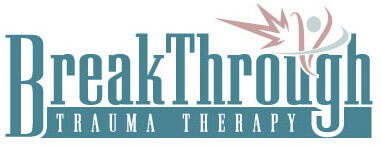Did you know trauma can extend from one generation to the next? The theory finds its roots in epigenetics research based on the molecular modification of (deoxyribonucleic acid) DNA. The researchers found activity changes in part of the DNA segment after exposure to trauma. They also noted subsequent generations can inherit these alterations.
The study participants were Holocaust survivors and their progeny. Researchers found these trauma markers in the blood samples of Holocaust survivors and their offspring up to the third generation. Aside from genes, subsequent generations also inherit behavioral traits stemming from enduring trauma. It could be in the form of drinking to escape stress, religion, hypervigilance, or an extraordinary display of perseverance or courage.
Why You Should Care About Generational Trauma
Generational trauma can increase the risk of mood disorders like PTSD, anxiety, depression, substance abuse, and eating disorders, regardless of individual experiences. You may not understand why you react the way you do in the face of stress or traumatic events, while your reaction is a consequence of nature – your genes and nurture – learned behaviors from your upbringing. Awareness helps you find ways to manage trauma and develop beneficial coping
skills.
How to Develop Coping Skills For Trauma Triggers
 Awareness
Awareness
The foundation of overcoming generational trauma begins with awareness. Knowing the root of the problem helps you dismantle the entire building easily. Identify the sources of your negative self-perception or beliefs. Did your parents, childhood friends, or teacher cement a negative outlook of yourself? Does your low self-esteem stem from growing up in a competitive environment with constant pressure to perform?
Analyze your family history. What battles did your grandparents fight? Did they remain resilient throughout the entire war? Draw similarities in how you handle challenges. Address the issues your introspection unveils.
Find A Safe Place
If your discoveries reveal flaws in your upbringing or harmful family dynamics, consider seeking a safe space for healing. Chances are your family is unknowingly in this toxic rabbit hole because of their cumulative lived experience. Until they can free themselves from the shackles of trauma, entertaining their unhealthy behaviors will dent any desire or progress toward healing.
A safe space could be a trusted friend group, trauma therapy, or a budding community. Guard your safe space zealously. It represents normalcy. It is your haven for healing. Go there when your trauma triggers manifest.
Be Intentional About Pursuing Healing
Healing hardly ever falls on your lap. It is a gradual process, requiring deliberate, willful, and consistent effort rather than a destination. Healing is work. It requires constant introspection and motivation.
Remember, you are going against the current. You are challenging norms, values, and realities you have been accustomed to since childhood. Challenge those familiar negative patterns with facts. Resist the urge to wallow in self-pity. Commit to affirming your new outlook.
Encourage yourself daily. Note improvements and celebrate milestones. You have already endured so much. Keep going. Every step forward alleviates the burden in your troubled soul.
Practice Mindfulness
 Learn to live in the present. The past can provide valuable insights into your current behaviors and thought patterns, but it is crucial to avoid getting stuck there. Enjoy what the present has to offer without judgment.
Learn to live in the present. The past can provide valuable insights into your current behaviors and thought patterns, but it is crucial to avoid getting stuck there. Enjoy what the present has to offer without judgment.
● Enjoy your environment, from nature's captivating sights and sounds to the people around you.
● Commit to engage fully in your interactions. Actively listen, encourage, and give constructive feedback. Relish your friendships.
● Immerse yourself into mundane activities, whether eating or cleaning. Take time to enjoy your food, from the flavors, textures, and colors. Draw satisfaction from a clean home, clothes, or space
Mindfulness helps you find value and satisfaction in the world around you. It nurtures contentment and happiness in the little blessings in life, driving out anxiety and stress.
Join a Support Group
 Humans are not meant to be islands. Research currently shows loneliness is far more detrimental to your mental and physical health. It worsens depression and anxiety disorders and makes coping with life’s pressures challenging.
Humans are not meant to be islands. Research currently shows loneliness is far more detrimental to your mental and physical health. It worsens depression and anxiety disorders and makes coping with life’s pressures challenging.
Research also shows the feeling of belonging activates the reward pathway motivating you to will to live and aspire for better. You can develop meaningful connections by joining communities that are making a positive impact. Volunteer for a cause, join a sports team or choir, take pottery lessons, or join a traveling group.
Aside from good company, a constructive social group provides support and accountability. Vet the group before joining. Focus on the member’s kindness, maturity, and goodness.
Redefine Your Thinking
 You do not have to harbor the negative thoughts from your past. Rewrite the story. Counter those negative experiences, words, and actions against you with your new found positive outlook. Choose a loving, forgiving, and kind perspective.
You do not have to harbor the negative thoughts from your past. Rewrite the story. Counter those negative experiences, words, and actions against you with your new found positive outlook. Choose a loving, forgiving, and kind perspective.
You will amount to something. Just because your teacher or parent weighed you down with doubt about your abilities does not mean you have no intrinsic value. You are lovable – that youthful heartbreak does not define your ability to attract good partners.
Be Kind to Yourself
Your life has already been hard enough. The world can be a gloomy place. You do not need to be your own critic. Acknowledge your weaknesses and work on them. However, do not scrutinize your failures with a microscope and your strengths with a telescope.
Double down on things that make you excel. For instance, your determination has led you down this healing path. Pat yourself on the back. Roll your sleeves and keep moving.
Seek Therapy
An easy and effective way to fight trauma triggers is through trauma therapy. A counseling psychologist has the resources, expertise, and experience to deal with all forms of trauma. They provide much-needed guidance, support, and accountability essential for confronting your past and overcoming the pain, fears, and despair it evokes. Leverage their expertise to understand your trauma and learn techniques for overcoming negative coping mechanisms and developing
healthier habits.
Remember, coping skills do not develop overnight. They require consistent practice to form habits. Take your time. The goal is to master ways that counter trauma triggers.
Contact Us
